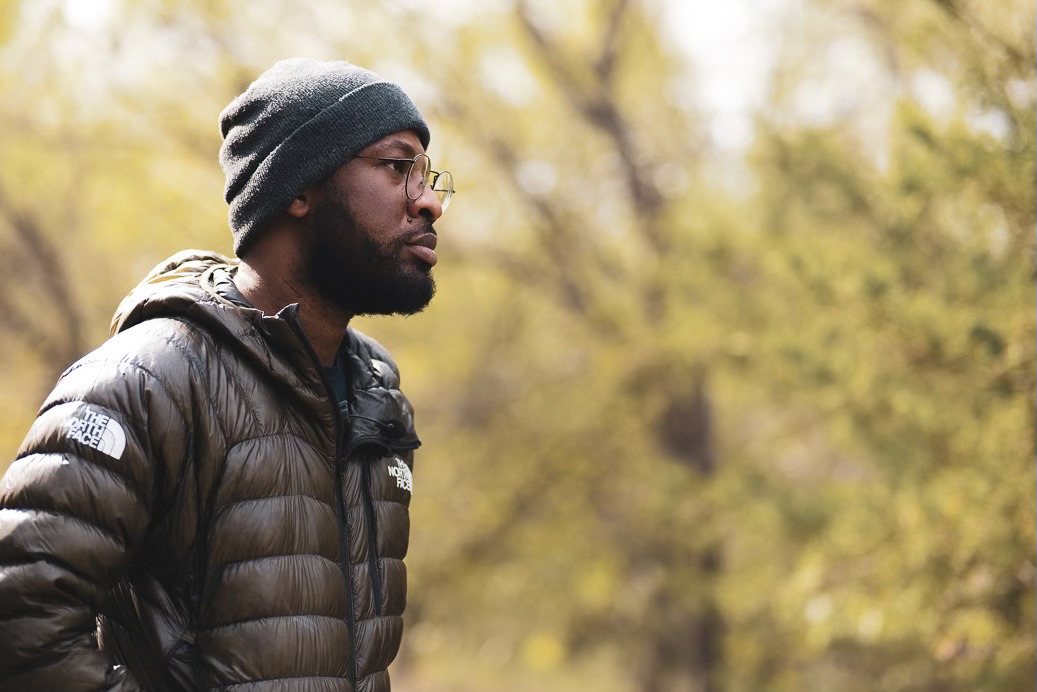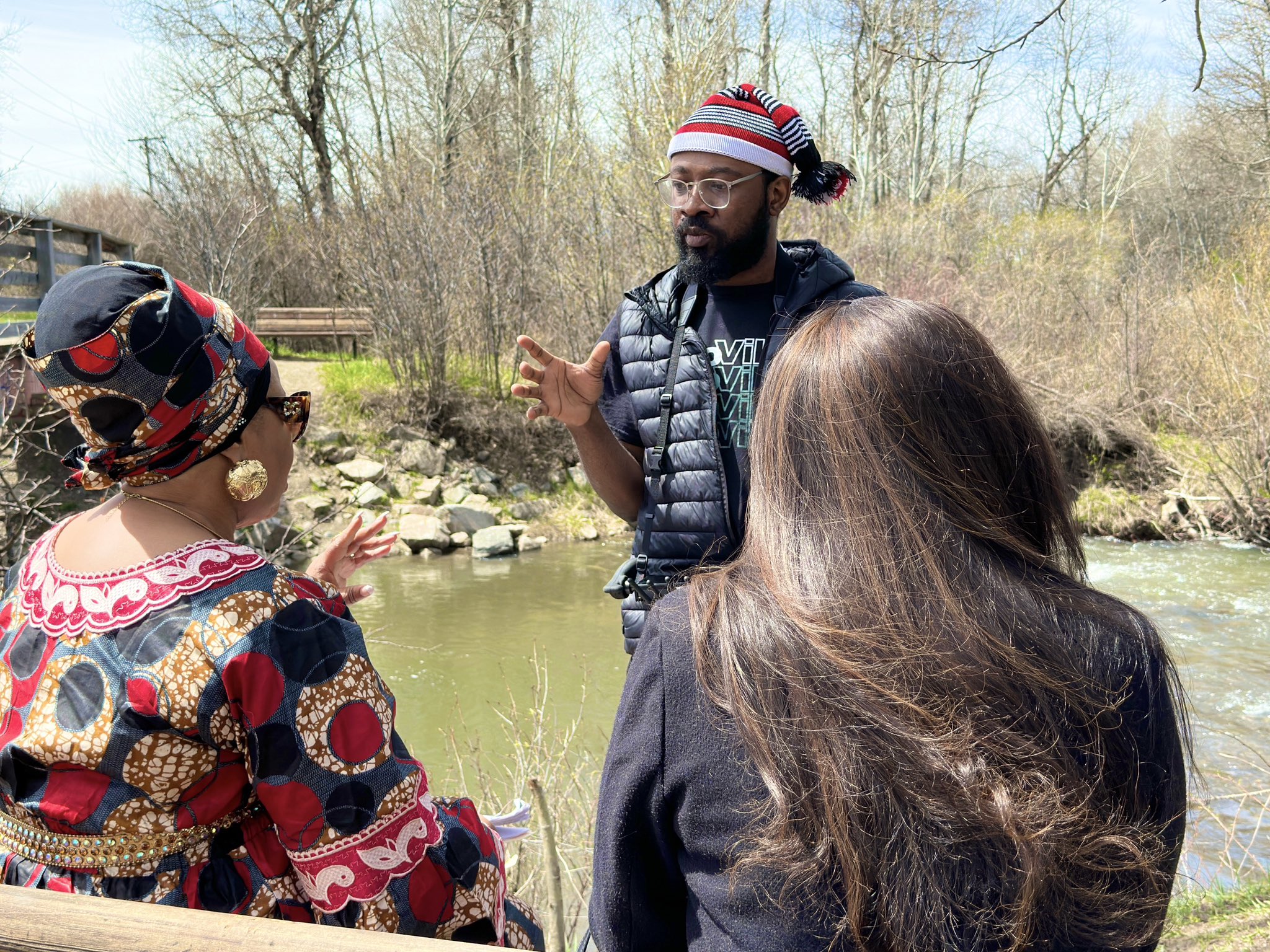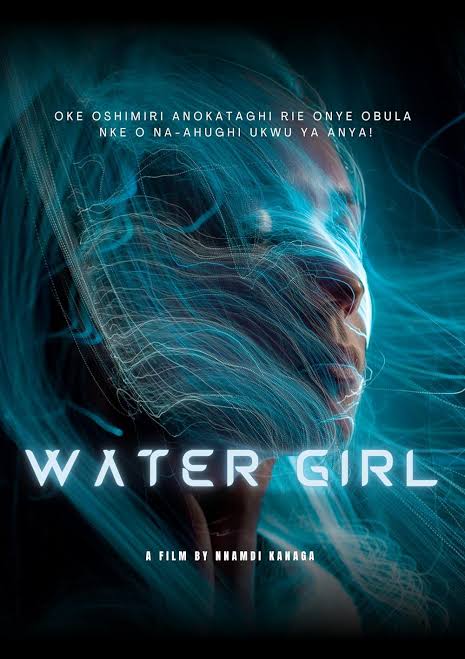Fetching From the Ever-Flowing Streams of Cultural and Historical Stories: Nnamdi Kanaga on His Education, Career, and 'Water Girl'
Tochukwu Precious Eze
- 27th September 2024

“I can do it!” young Nnamdi screams from the window as though on impulse. “I can act police!”
Though unsure, the teacher brings him in to audition for the part. Young Nnamdi decides to leave little to chance, and in a moment, the entire hall erupts as he throws himself across the stage, palms clutched and held out, enacting a shooting scene. Every ounce of doubt leaves the room, and right then and there, Nnamdi is given his first role in a stage play. He would go on to make a boisterous career as an actor and filmmaker.
In secondary school, his senior bunkmate used to write short stories and plays in small notebooks. Kanaga immediately took to this and began writing numerous stories each term, inspiring most of his classmates to take up writing. By the time he graduated, his class was the first in the history of the school to produce and publish a book.
Nnamdi’s father ensured that his children received their education in Igboland, a move Nnamdi believes was an effort to keep them connected to the Igbo culture and ways:
“I can’t say for sure why he did that. We did not have that conversation. My siblings and I had our secondary education in Enugu, and that was the same for university. Although my first choice was the University of Ibadan, I ended up not taking the Post UTME screening exercise because my father had already decided on the University of Nigeria, Nsukka. I can only assume that the intention was to bring us closer to home and keep us acquainted with the ways of our people.”
Today, Nnamdi is thankful for the experience. He learned a lot about Igbo culture during his time in Enugu, gaining fluency in the language and becoming familiar with the festivals and ceremonies held dear. “I can also dance ogene,” he adds. “I learned this while I was in Enugu.”
Having developed a passion for the stage, the Department of Theatre Arts and Film Studies felt like home to Nnamdi. He was determined to get into the film industry and did not waste any time; fighting to break into the industry while still a student. In his words, he desperately wanted to act and was always willing to go the extra mile to get his shot.
“It’s much easier now to land a role as a budding actor because we have social media, where you can upload your reels and the right people might see them. Back then, it was a lot harder to get in. I first mastered makeup effects–self taught– which served as my way in. At the time, there were a few productions that brought some big-time actors to film on campus. Thankfully, I knew some people who put me through, and often I would do their SFX makeup on set. I would always remind them that I could act, just in case something came up, and now and then, I got one of those 'waka pass' roles [an extra].
“Then came a film adapted from a popular play 'Spokesman for the Oracle' written by the Head of the Department at the time. I think the Vice Chancellor provided the funding for the project, and we had popular actors like Rita Edochie, the late Amaechi Muonagor, and Clem Ohameze starring in the film. Some guy, one of the most talented actors then in the department, who was supposed to play the gateman was asked to cut his hair and refused. Hearing the exchange, I immediately opted to cut mine and fill the role. That day, I raced as fast as my legs could carry me to the salon and back. This was how I got the role of the gateman in that film, and it was, at the time, my biggest role.”
Nnamdi Kanaga has come a long way since taking whatever roles came his way. After moving to the US, he landed a role in a film, but his excitement was soon cut short when he was informed that the makers would be going a different route with the project. The director later told him that this decision was influenced by the difficulty of casting black people in Montana. This experience convinced Nnamdi that he could no longer settle for what he was given and that it was time for the next stage of his career.
'Oreva' (2017), Kanaga’s first self-produced film, was written just after his National Youth Service Corps program. Filled with passion, he wrote the first draft of the script in one night and sent it out for feedback. After several revisions, he was confident enough to move forward with it. The making of Oreva, a mental health-themed short film, faced many challenges, including a cab driver zooming off with the kit he had purchased for the film. However, with Kanaga, the bigger the challenges, the more driven he is in pursuit of the goal. He persevered in making Oreva, and then Talisman (2019), basking in the success these films achieved upon release.

His first feature film, The Hail Mary, also came with its challenges. He envisioned making a film with an all-black lead cast in the state of Montana, where he had once been dropped because of the difficulty with casting his family and community as black characters.
Nnamdi Kanaga’s latest project, Water Girl, tells the story of a young girl who, upon turning eighteen, realizes she has ties to the water and must answer the call. The concept of an ogbanje story has not been widely embraced, but Nnamdi maintains that it is a part of the Igbo identity.
“You cannot separate culture from real life– culture in itself is a way of life. For example, we believe in ghosts; for us, they are real. These paranormal entities are represented in our culture, arts, folklore, and literature. So, in my process, there is no conflict between realism and cultural representation. Rather, there is balance. Striving for this balance is how I tell honest, authentic stories”
“African stories [especially the ones made abroad] should not just be about migration and trying to adapt to cultural shifts. Igbo stories alone are inexhaustible; they just need to be told by people who understand them deeply—people who were made by these stories. It’s the same for Yoruba indigenous stories. It hurts to see that Indigenous films have not thrived as one would expect. I grew up watching old indigenous Igbo and Yoruba films, which were unique and original. I just wish other filmmakers like me would tap into the ever-flowing streams of cultural and historical stories. This is how we put our stories on global screens.”
Great efforts have been made to ensure that Water Girl feels authentically Igbo. Kanaga opts for actors who can deliver their lines in the Igbo language, and those who can’t are made to learn the lines. The scores are carefully sourced and recorded to accentuate the film’s atmosphere. The costumes are also deliberately chosen:
“My mum had to send one of her 'meeting blouses' all the way from Nigeria to Montana because it seemed perfect for one scene. We also had the Adamma masquerade make an appearance. Everything comes together to create an experience that feels true to the Igbo person and serves as a doorway into our realities for the rest of the world.”
